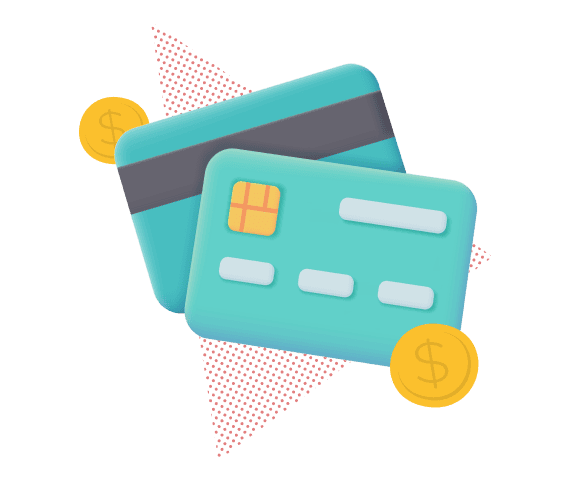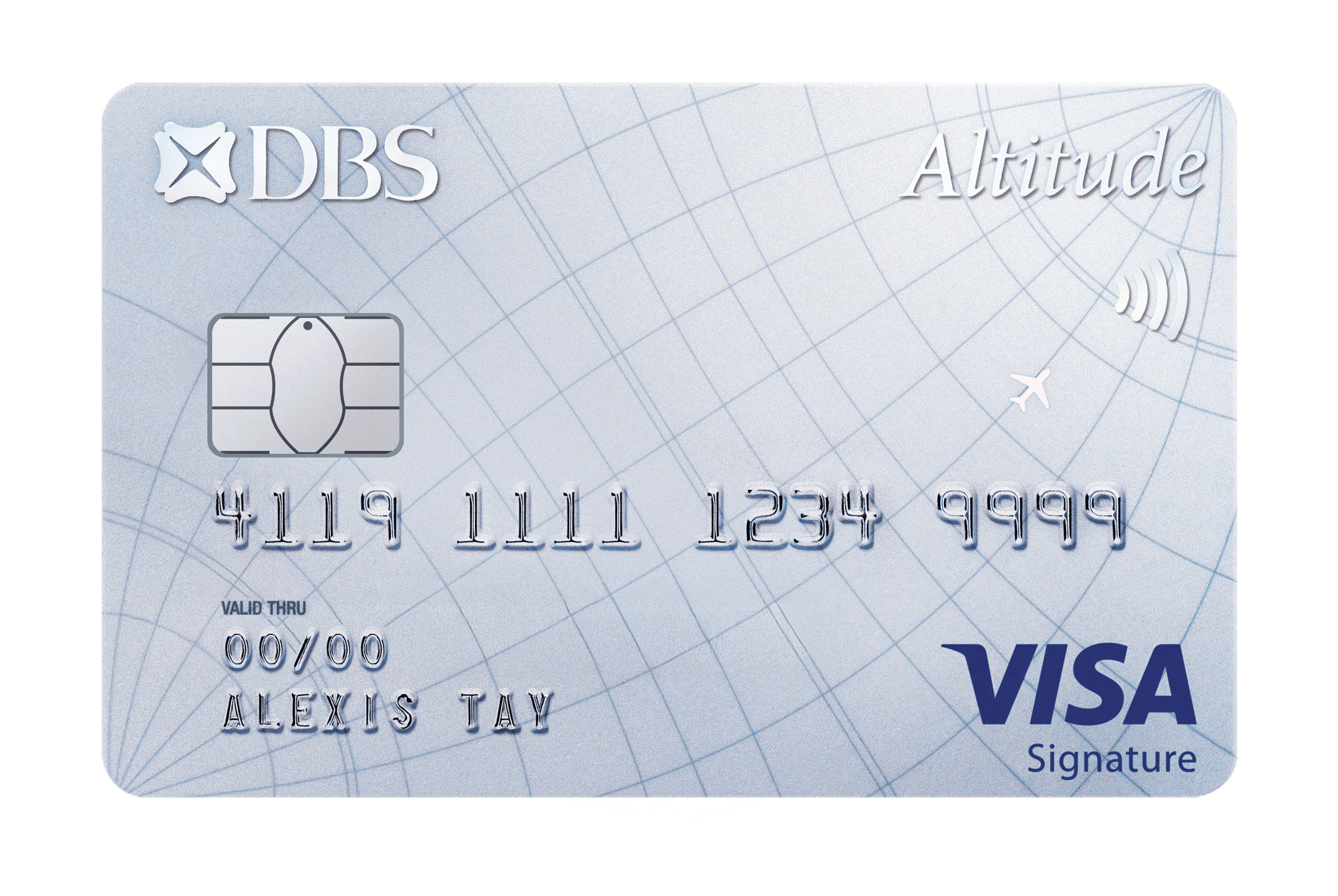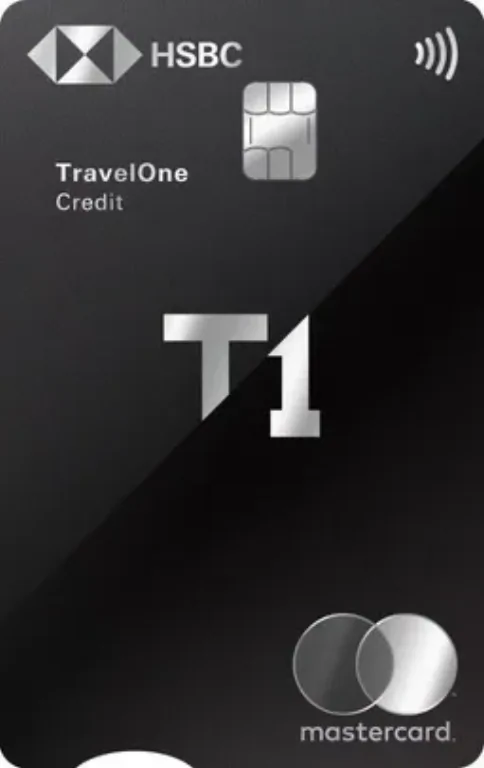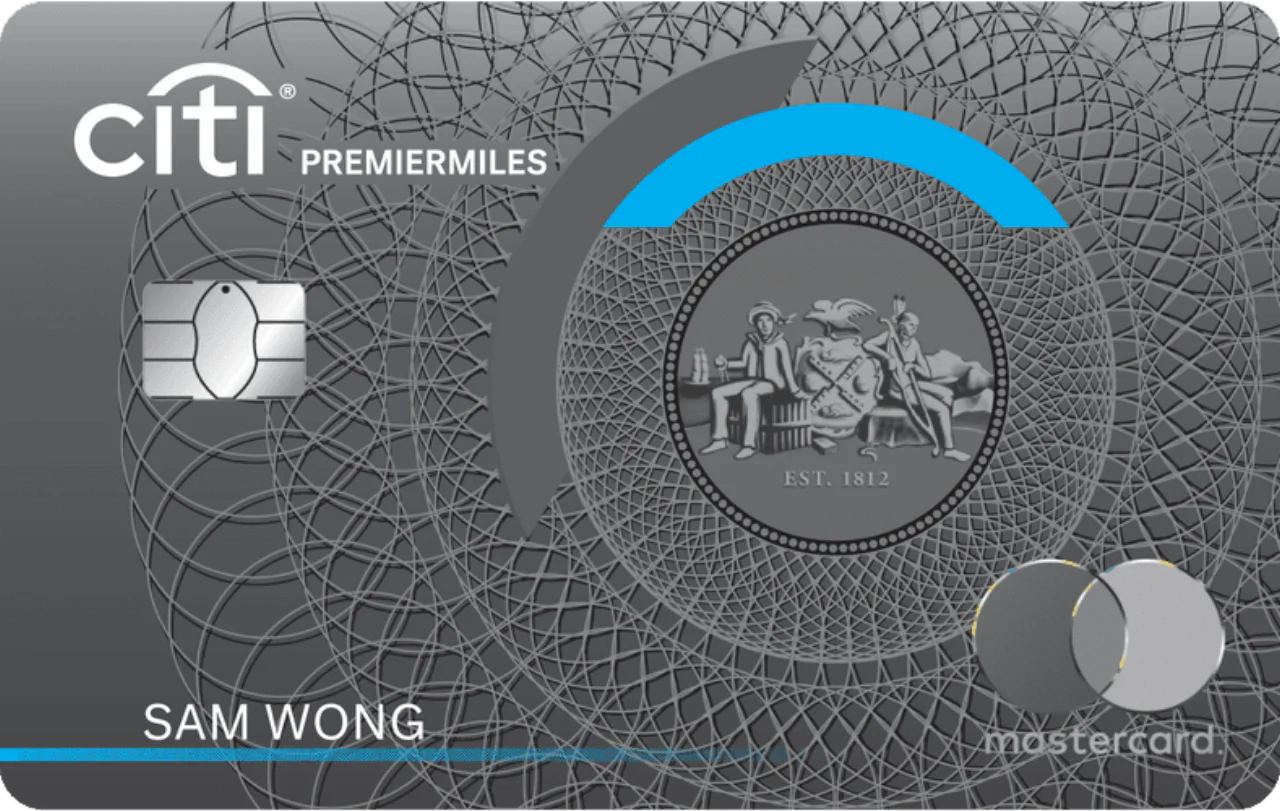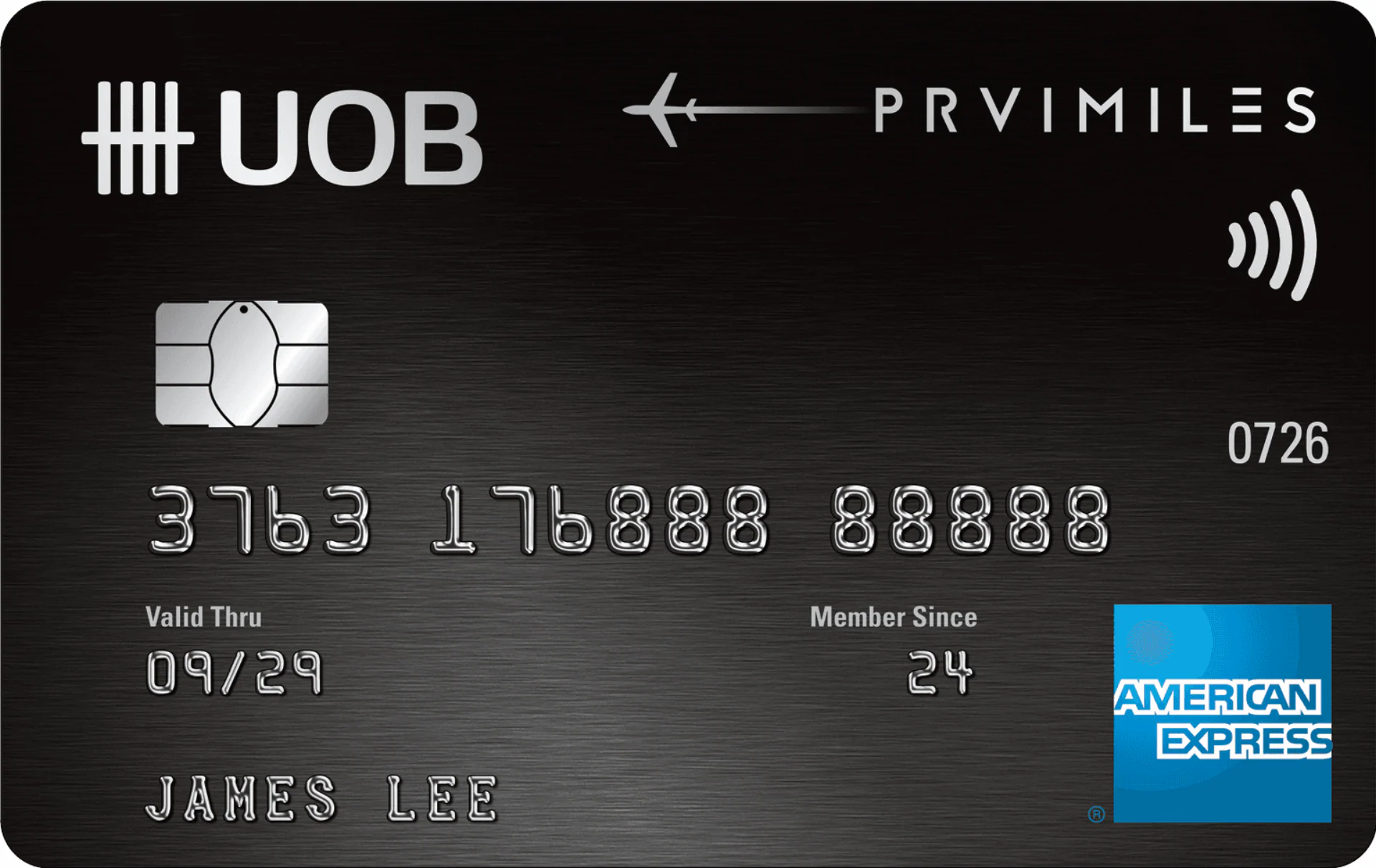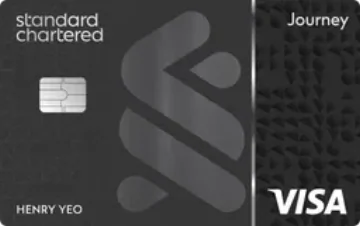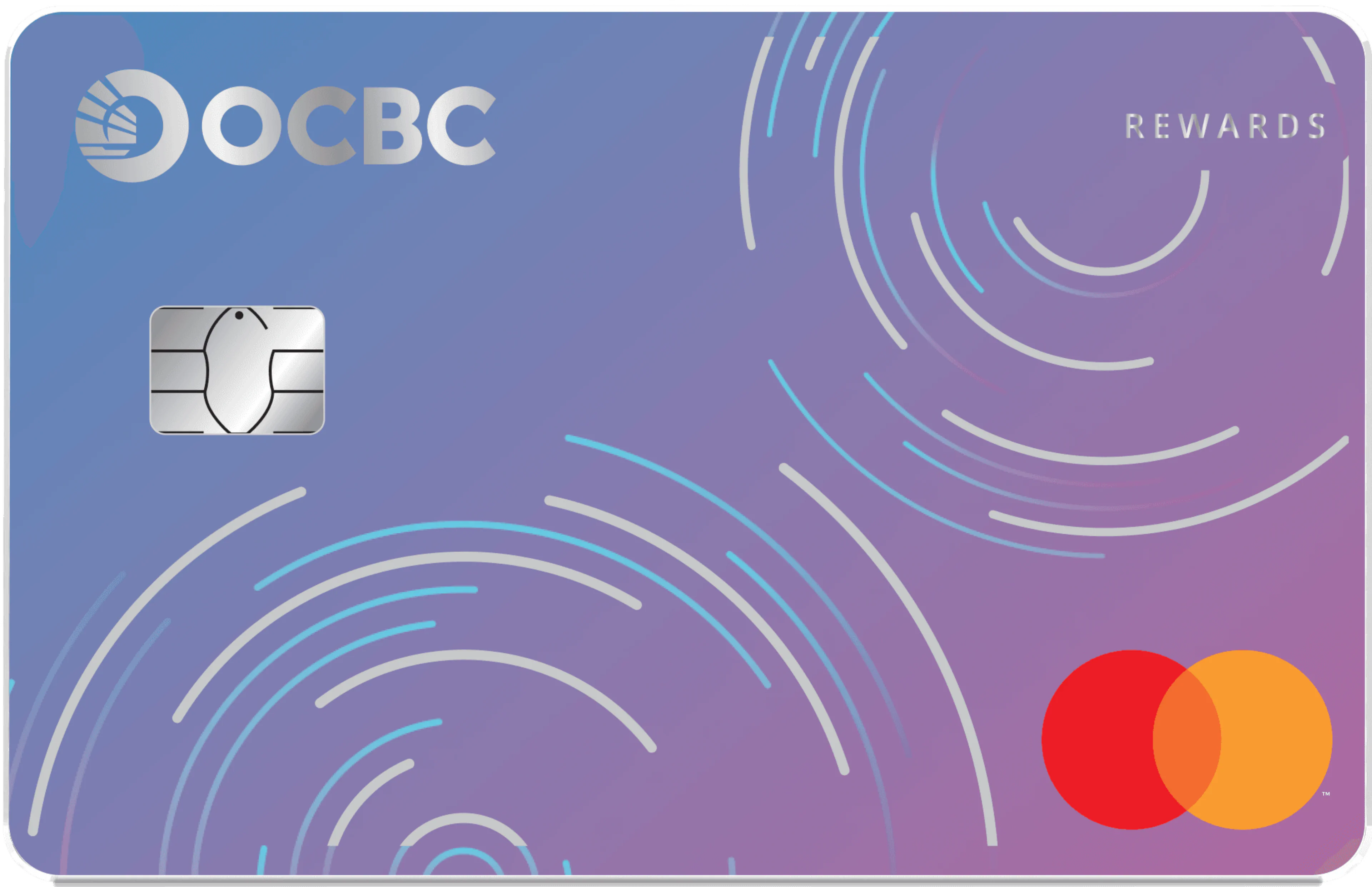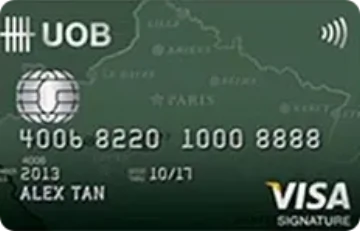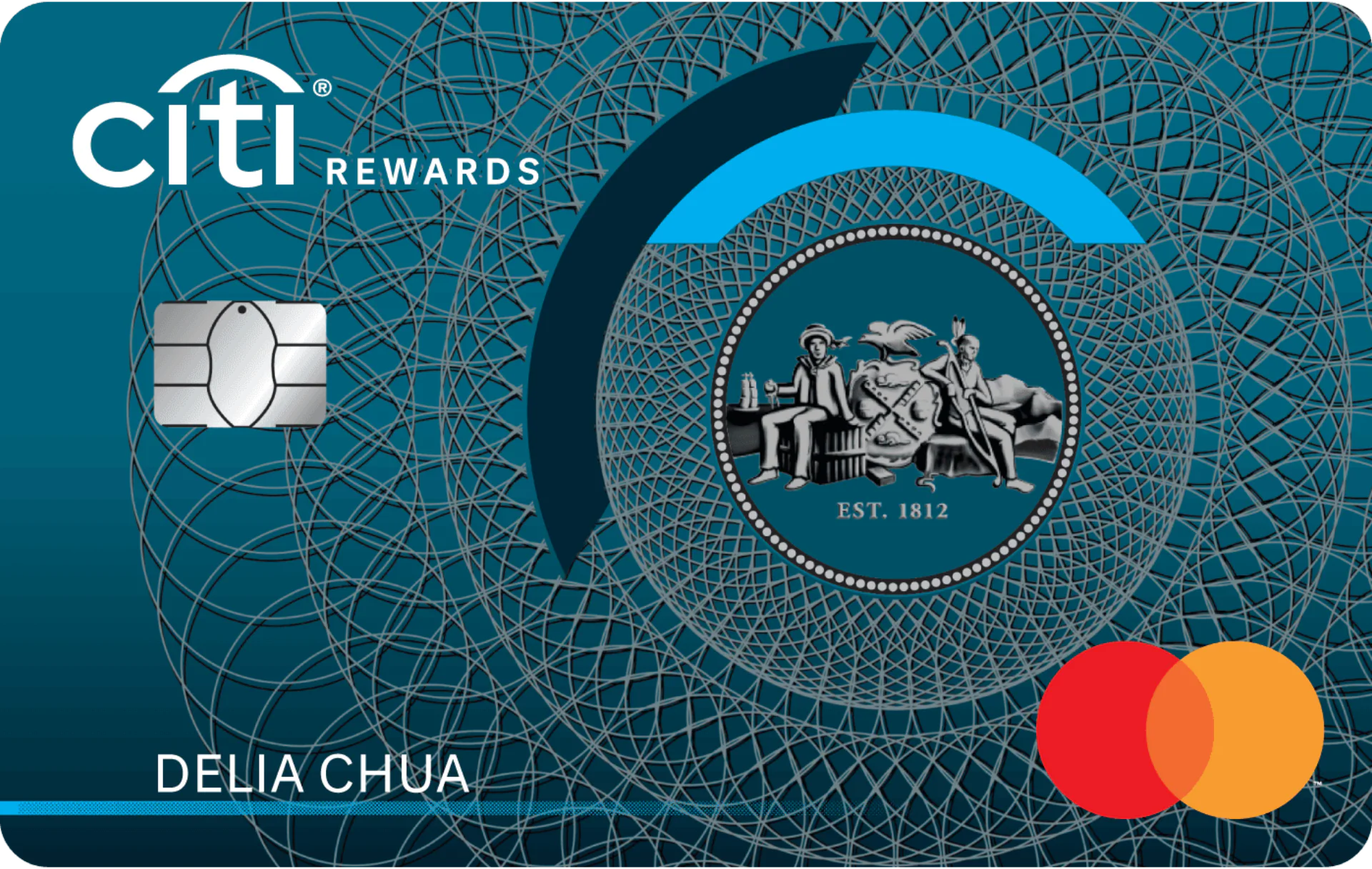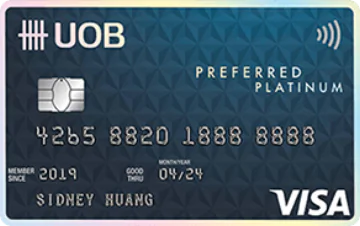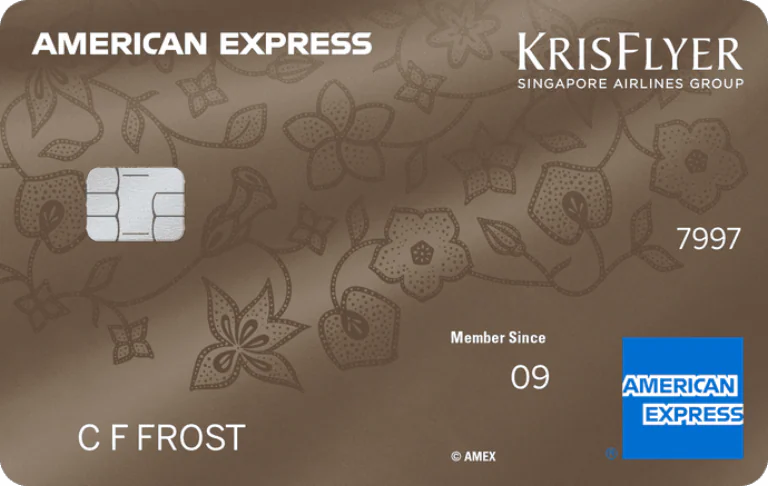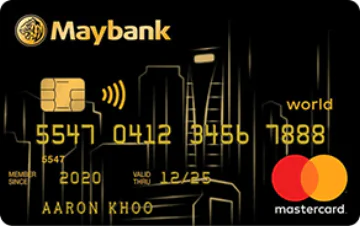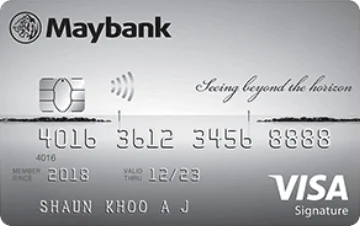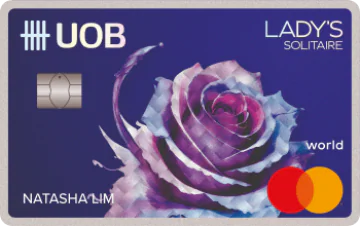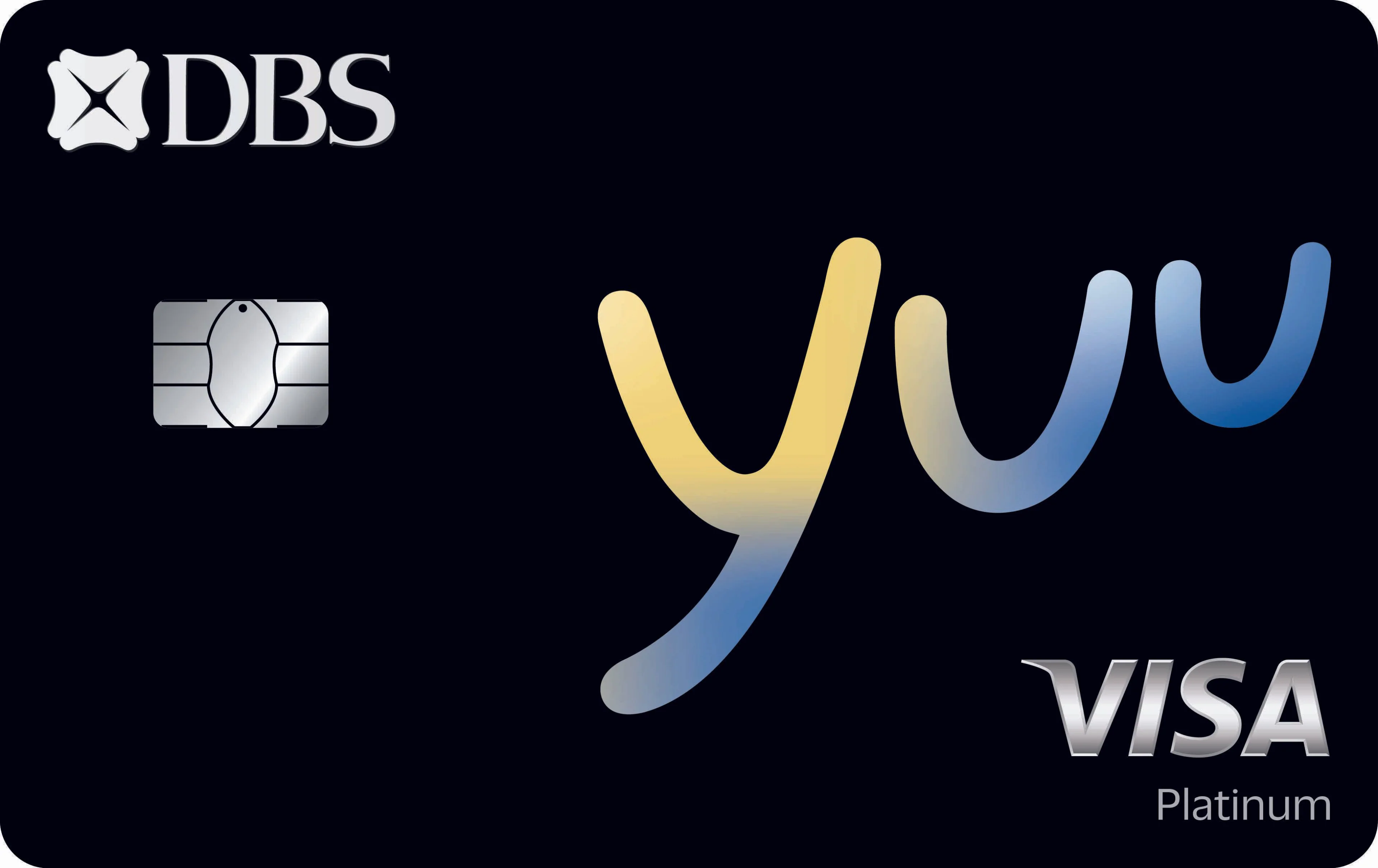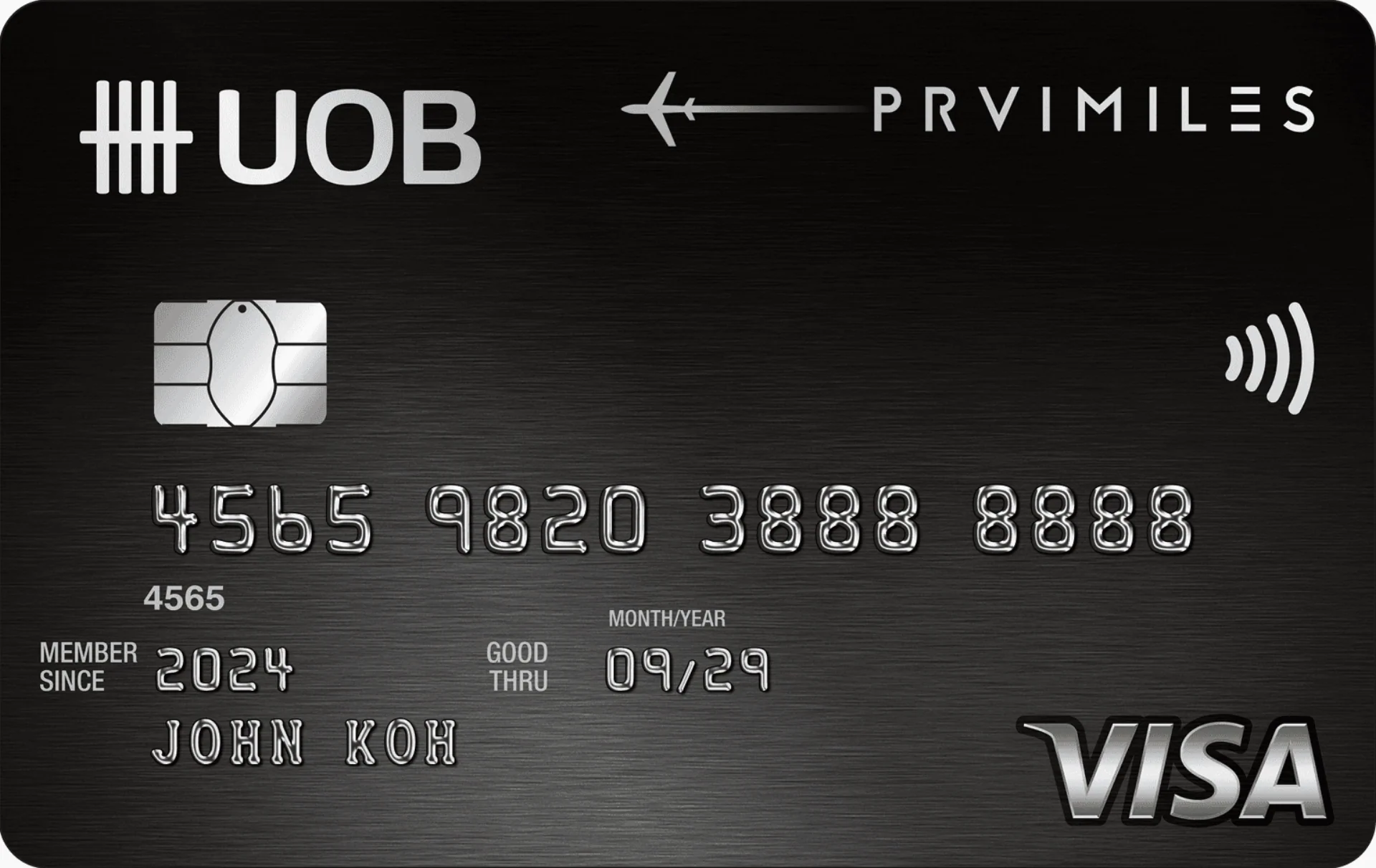How to Earn Credit Card Miles on IRAS Income Tax in Singapore
Updated: 22 Oct 2025
Turn your yearly tax bill into air miles — here’s how savvy cardholders are earning rewards by paying their IRAS income tax with a credit card workaround.
Tax season may not bring joy, but for the financially savvy, it offers a surprising opportunity — earning air miles or cashback rewards. Every year, the Inland Revenue Authority of Singapore (IRAS) issues a Notice of Assessment (NOA) to let you know how much income tax you owe. This can be paid in full or split into monthly instalments through GIRO. While IRAS does not allow direct credit card payments, you can still use your card to pay — just not in the usual way.
Instead, third-party payment platforms and selected banks offer solutions that let you charge your tax bill to a credit card, with a small service fee in return for miles, points or cashback. This method is becoming increasingly popular among Singaporeans looking to maximise everyday spending for future travel rewards.
>> MORE: Best bill and tax payments services that still earn you rewards and miles in Singapore
Can you earn miles from paying IRAS income tax?
The answer is: No. You cannot directly pay your tax bill with a credit card.
To quote IRAS: “We do not offer credit cards as a payment mode as the transaction costs charged by the credit card service providers are high. We need to keep our cost of collection low to preserve public funds.”
However, if you’re hoping to earn credit card rewards, there’s a clever workaround: using a third-party service provider or bank facility to handle the payment for you.
These services charge your credit card, then transfer the funds to IRAS either on your behalf (direct payment) or by depositing the funds into your account (indirect payment). While there’s a service fee involved, many find the trade-off worth it, especially when earning valuable miles on large tax sums. This method has grown in popularity among Singaporeans who want to rack up KrisFlyer miles or bank points without additional purchases.
Rack up miles rewards with a credit card for frequent flyers
No matter your travel habits, earn miles with these credit cards tuned for great mpd and low minimum spend.
What are the payment platforms available?
There are two main types of payment facilities to help you pay your taxes via credit card: direct and indirect.
Direct payment facilities transfer the money straight from the platform to IRAS. You simply provide your tax details and authorise the credit card payment. Examples of such platforms include CardUp and ipaymy, as well as certain bank facilities like DBS My Preferred Payment Plan and Citi PayAll.
Indirect payment facilities, on the other hand, deposit the equivalent cash amount into your bank account. You’re then responsible for making the tax payment yourself. These are less common for IRAS tax payments but may appeal to those who want more flexibility in timing their payments.
Direct payments are generally more convenient — you set it up and it’s done. Indirect payments offer flexibility but require extra effort and discipline. Choose based on your cashflow needs and personal preference.
Paying income tax with CardUp
CardUp is a widely used direct payment platform that lets you pay IRAS via credit card for a fee, typically around 2.25%, although promos can bring it lower.
Say you owe S$5,000 in tax. Paying through CardUp with a 2.25% fee would cost S$112.50 — but you could earn roughly 6,000 miles, depending on your card.
>> MORE: Paying income tax: Are CardUp, ipaymy, and Citi PayAll worth the admin fee?
Here’s how to use CardUp:
-
Create a CardUp account and verify your email.
-
Select “Income Tax Payment” as your payment type.
-
Retrieve your IRAS tax reference number from your NOA or myTax Portal.
-
Enter the payment amount and date.
-
Choose your credit card and enter your details.
-
Apply any promo codes and confirm payment. (“VTAX25ONE” for 1.75% fees for income tax payment. T&Cs apply)
CardUp sends the payment directly to IRAS, and your card is charged just like any other transaction.
Paying income tax with ipaymy
ipaymy works similarly to CardUp and is another reliable option for paying IRAS income tax. Its standard processing fee ranges from 2.25% to 2.6%, although limited-time promotions can lower the rate.
Let’s say you’re using a Citi PremierMiles card and paying S$10,000 in tax via ipaymy with a 2.25% fee. That’s S$225 in fees, but you could earn up to 12,000 miles — which may be worth it if you redeem them well.
How to use ipaymy:
-
Sign up for an ipaymy account.
-
Choose “Pay IRAS” or “Income Tax” as your payment type.
-
Retrieve your tax reference number from IRAS.
-
Key in the amount, schedule the payment date, and add your credit card.
-
Use any valid promo code to lower fees. (“TAX2025” for just 1.75% fees when paying with your Visa card for income tax payment. T&Cs apply.)
-
Confirm and submit your payment.
As with CardUp, ipaymy pays IRAS directly, and you’ll receive a confirmation once the transaction is processed.
Paying income tax with a bank-related payment facility
Several banks offer their own payment services that let you pay IRAS and earn rewards. Examples include DBS My Preferred Payment Plan, OCBC VOYAGE Payment Facility, SC EasyBill, and UOB Payment Facility.
These typically charge between 1.9% and 2.5% in processing fees and may be open to select cardholders or require application through internet banking or mobile apps. Some also offer miles at an accelerated rate or let you split payments into monthly instalments — useful if you’re managing cash flow.
As a use case: a DBS Altitude Visa cardholder might opt for DBS My Preferred Payment Plan to split a S$8,000 IRAS payment into 12 monthly instalments while earning miles at a flat fee.
Each bank has its own conditions, so always check eligibility, fees, and whether your card qualifies before applying.
DBS Altitude Visa Signature Card
- Up to 1.3 miles per S$1 spent locally, including bus and train rides.
- Up to 2.2 miles per S$1 spent on overseas purchases in foreign currency.
- Receive 10,000 bonus miles when you pay the annual fee of S$196.20
- 2 free lounge visits within each 12-month period of your membership to over 1,500 airport lounges worldwide.
- Read our full review of the DBS Altitude Card.
- Bonus air miles
- Airport lounge
- No expiry air miles
- Unlimited air miles
- Miles are awarded in the form of DBS points which are awarded for every S$5 spent.
- Each conversion of DBS points to miles will be subjected to an administrative fee of S$25 (exclusive of GST).
Card details
-
1.3 miles per S$1 spent locally at maximum, including bus and train rides.
-
2.2 miles per S$1 spent on overseas purchases in foreign currency at maximum.
-
10,000 bonus miles when you pay the annual fee of S$196.20
-
2 free lounge visits within each 12-month period of your membership to over 1,500 airport lounges worldwide.
-
Miles are awarded in the form of DBS points which are awarded for every S$5 spent.
-
Each conversion of DBS points to miles will be subjected to an administrative fee of S$25 (exclusive of GST).
SingSaver’s take
The DBS Altitude Visa Signature Card is a solid entry-level miles card for frequent travellers and young professionals, offering non-expiring miles, complimentary lounge access, and a generous welcome bonus — though its earn rates are modest compared to premium alternatives.
Best income tax credit card: SC Visa Infinite Credit Card
The Standard Chartered Visa Infinite Credit Card stands out as a top choice for earning miles on your IRAS income tax payments in Singapore. Its dedicated Income Tax Payment Facility allows cardholders to convert their tax obligations into valuable air miles, making it an excellent tool for frequent travellers and high spenders.
Why the SC Visa Infinite Credit Card
Unlike many cards that exclude tax payments from rewards, the SC Visa Infinite offers a specialised facility that enables you to earn miles on your income tax payments. By applying through this facility, you can have the tax amount credited to your bank account, which you then use to pay IRAS.
From 1 April to 30 June 2025, enjoy a full cashback rebate on the 1.9% processing fee when you use the Standard Chartered Income Tax Payment Facility and credit the tax amount to your Standard Chartered bank account. You can receive up to S$300 cashback, on top of the base miles earned from your tax payment.
Standard Chartered Visa Infinite Credit Card
Card details
-
3 miles per dollar at maximum in every statement cycle where a min. eligible spend of S$2,000 is made.
-
6 lounge visits per year with complimentary Priority Pass membership
-
S$1 million complimentary travel insurance coverage at maximum when you charge your full travel fare to this card.
-
Get access to exclusive card offers and privileges with The Good Life programme.
-
Earn rewards points on education, rental, insurance, and tax payments via SC EasyBill.
-
Base earn rate of 1 mile per S$1.
-
A S$26.75 transfer fee is levied for every mileage transfer rewards code redeemed.
-
Annual fee is strictly non-waivable.
SingSaver’s take
The Standard Chartered Visa Infinite Credit Card offers attractive benefits for frequent travellers who can meet its high income and spending requirements. However, the substantial annual fee and limited transfer partners may deter some users. Prospective cardholders should carefully assess whether the card's benefits align with their spending habits and travel goals.
Comparing rates and fees
|
Payment facility |
Applicable credit cards |
Fees |
|
CardUp |
Most Visa/Mastercard credit cards |
~2.25% |
|
ipaymy |
Most Visa/Mastercard credit cards |
~2.25%–2.6% |
|
Citi PayAll |
Citi PremierMiles, Citi Rewards |
2.2% |
|
DBS My Preferred Payment Plan |
DBS Altitude, DBS Vantage |
~2% |
|
SC EasyBill |
SC Visa Infinite, SC Journey |
~2% |
|
OCBC VOYAGE Payment Facility |
OCBC VOYAGE |
~2.25% |
|
Standard Chartered Income Tax Facility |
SC Visa Infinite, SC X Credit Card |
~2.2% |
|
UOB Payment Facility |
UOB PRVI Miles |
~2%–2.5% |
* Applicable cards and fees have been drawn from official bank websites, CardUp official website and ipaymy official website. However, they are always subject to change, and we advise readers to conduct their own research when making financial decisions.
Best promo codes for 2025 tax season
Promotional codes are often released during tax season to help reduce payment platform fees — these can significantly increase the value of your miles.
2025 income tax payment promo codes:
-
CardUp
“VTAX25ONE” for 1.75% fees for income tax payment (one-off, ends 23 May 2025). T&Cs apply.
“VTAX25R” for 1.75% fees for income tax payment (recurring, ends 31 Aug 2025). T&Cs apply.
-
Ipaymy
“TAX2025” for just 1.75% fees when paying with your Visa card for income tax payment (one-off, ends 31st August 2025). T&Cs apply.
“TAX199” for just 1.99% fees when paying with your AMEX or Mastercard for income tax payment (one-off, ends 31st August 2025). T&Cs apply.
Banks may also run targeted campaigns:
-
Citi PayAll may offer bonus miles when hitting specific payment thresholds.
-
DBS My Preferred Payment Plan sometimes gives bonus DBS Points on top of regular miles.
-
OCBC VOYAGE may bundle additional VOYAGE miles with IRAS payments.
-
SC EasyBill often provides cashback or waived fees for new users.
Always check the terms and expiry of each promotion — and ensure your card qualifies.
Best credit card sign-up bonuses 2025
Compare sign-up offers now and turn your next big payment — even income tax — into bonus rewards.
Benefits of paying IRAS income tax with credit card
One of the main reasons to pay IRAS with a credit card is the chance to earn air miles or rewards points on a large transaction. Income tax bills can range from a few hundred dollars to five-figure sums, so it’s a good opportunity to boost your rewards balance significantly with a single transaction.
It’s also a clever way to meet minimum spend requirements for sign-up bonuses. Many credit cards offer 10,000–50,000 bonus miles if you spend S$2,000–S$4,000 within the first few months — and a tax bill can help you hit that in one go.
>> MORE: 7 smart ways to meet your credit card minimum spend to earn the welcome reward
Charging your tax to a card can also improve cash flow. Even though you’re paying a service fee, you’re essentially deferring payment until your credit card’s due date — and possibly splitting it across months if your bank offers instalment plans.
Tracking your expenses is easier too. With credit card statements, you’ll have a clear digital record of your income tax payment, useful for personal budgeting or financial planning.
Lastly, promo codes from CardUp or ipaymy often reduce fees enough that the cost per mile earned becomes highly attractive — sometimes under 1.3 cents per mile.
Which credit cards are best for earning miles from IRAS payments?
To make this strategy worthwhile, choose cards that earn 1.2 to 1.6 miles per dollar for general spend and don’t exclude payments through CardUp or ipaymy.
Top picks include:
|
Credit Card |
Miles Earn Rate (Local) |
Miles Earn Rate (Overseas / Online) |
|
DBS Altitude Visa |
1.2 miles per S$1 |
1.6 miles per S$1 overseas |
|
UOB PRVI Miles |
1.4 miles per S$1 |
2.4 miles per S$1 overseas |
|
Citi PremierMiles |
1.2 miles per S$1 |
1.2 miles per S$1 overseas |
|
HSBC Revolution |
1.0 mile equivalent |
For eligible online & contactless spend (check category terms) |
Citi PremierMiles Card
- 1.2 miles per S$1 spent locally.
- 2.2 miles per S$1 spent in foreign currency.
- Citi Miles never expire. Can be exchanged for a variety of frequent flyer miles, hotel stays, rewards and cash rebates.
- Use Citi PayAll to earn Citi Miles, Citi ThankYou PointsSM or Cash Back when you pay your bills with your Citi Credit Card.
- Earn miles on rent, condo management fees, school fees, taxes and bills via Citi PayAll.
- 2 free airport lounge visits per year to participating Priority Pass lounges worldwide.
- Up to S$1 million travel insurance coverage when you charge your travel tickets to this card. There will be a revision made to the Citi Credit Cards complimentary travel insurance. The Travel Insurance coverage in respect of a Trip charged to Citi PremierMiles Card will be updated to end on 31 March 2026. For more information, please click here.
- 11 different airline and hotel transfer partners.
- Generous sign-up bonus with relatively low minimum spend.
- Read our full review of the Citi PremierMiles Card.
- No expiry air miles
- Airport lounge
- Travel rebate
- Gift: Apple product
- Admin fee of S$25 (excluding GST) for each conversion of Citi Miles to frequent flyer miles.
- Service fee applies to Citi PayAll facility.
Card details
-
S$1,000,000 complimentary travel insurance coverage at maximum.
-
Complimentary access to airport lounges worldwide (via Priority Pass membership)
-
Option to redeem miles for flights, hotels, or other rewards.
-
No minimum spend required to earn rewards.
-
Miles do not expire.
-
Welcome offers available
-
Foreign currency transaction fee: 3.25%.
-
Air miles conversion fee: None typically charged for transferring to partner airlines.
-
Interest on purchase: 27.9% per annum
-
Interest on cash advance: 27.9% per annum
-
Interest-free period: 25 days.
-
Supported by VISA, Mastercard (two variants exist), Google Pay, Apple Pay, Samsung Pay.
SingSaver’s take
The Citi PremierMiles Card is a popular choice for travellers due to its competitive overseas miles earn rate, complimentary travel insurance, and airport lounge access. The lack of miles expiry provides added flexibility for redemptions. Its partnership with Agoda can also offer a significantly higher miles earn rate for bookings made through the designated channel.
Before committing, review your card’s T&Cs. Some cards exclude payment facilitators from rewards, while others set caps or require a minimum spend per statement month. Ensure your spend qualifies to avoid disappointment.
When does paying IRAS income tax with a credit card make sense?
This strategy makes the most sense when the value of the miles you earn outweighs the service fee you pay. For example, if you’re earning 1.4 miles per dollar at a 2% fee, and redeeming those miles for premium cabin travel (valued at ~2 cents/mile), you’re coming out ahead.
Here’s a comparison table to help you calculate your cost per mile (CPM):
|
Card |
Payment facility |
Fee |
CPM (Cost per mile) |
|
DBS Altitude Visa |
CardUp |
2.25% |
~1.6 cents |
|
UOB PRVI Miles |
ipaymy |
2.25% |
~1.5 cents |
|
Citi PremierMiles |
CardUp |
2.25% |
~1.9 cents |
|
Citi PremierMiles |
Citi PayAll |
2.2% |
~1.8 cents |
|
HSBC Revolution |
ipaymy |
2.25% |
~2.3 cents (lower earn) |
You generally want a CPM of 1.6 cents or less to make this strategy worthwhile — especially if you're planning a redemption for long-haul or business class travel.
Example of miles rewards using a credit card to pay income tax
Say you pay S$5,000 in income tax using the UOB PRVI Miles card via ipaymy at a 2.25% fee. That’s S$112.50 in fees.
At 1.4 miles per dollar, you’ll earn 7,000 miles. If each mile is worth 2 cents, that’s S$140 in value — meaning a net gain of S$27.50 after deducting the fee.
Formula:
(miles earned x value per mile) – fee = net value
(7,000 x 0.02) – 112.50 = 140 – 112.50 = S$27.50 net value
Maximise your rewards with UOB with their best cards
Use a UOB miles credit card to pay your income tax and relax as the rewards roll in.
UOB PRVI Miles Visa Card
UOB PRVI Miles Visa Card
- Earn 3 miles per S$1 spend (UNI$7.5 per S$5 spend) on regional spend in Indonesia, Malaysia, Thailand, Vietnam, including online shopping on overseas website.
- Earn 2.4 miles per S$1 spend (UNI$6 per S$5 spend) on other overseas spend, including online shopping on overseas websites.
- Earn 1.4 miles per S$1 spend (UNI$3.5 per S$5 spend) on local spend.
- 4 complimentary lounge visits per calendar year for principal cardmembers.
- Earn up to 8 miles per S$1 spend (UNI$20 per S$5 spend) on agoda and Expedia bookings via UOB PRVI Miles website.
- Earn up to 6 bonus KrisFlyer miles for every S$1 spend if you also apply for a new KrisFlyer UOB Account.
- Complimentary personal accident coverage and emergency medical assistance of up to S$500,000.
- Choice to redeem for miles, cashback, or vouchers.
- No minimum spend and no cap on earned miles
- Bonus air miles
- Unlimited air miles
- Travel insurance
- No monthly spend required
- Annual fee of S$261.60
- Terms and conditions apply for all above-mentioned privileges. Visit here for more details. Insured up to S$100,000 by SDIC.
Card details
-
3 miles per S$1 spend (UNI$7.5 per S$5 spend) on regional spend in Indonesia, Malaysia, Thailand, Vietnam, including online shopping on overseas website.
-
2.4 miles per S$1 spend (UNI$6 per S$5 spend) on other overseas spend, including online shopping on overseas websites.
-
1.4 miles per S$1 spend (UNI$3.5 per S$5 spend) on local spend.
-
4 complimentary lounge visits per calendar year for principal cardmembers.
-
Earn up to 8 miles per S$1 spend (UNI$20 per S$5 spend) on agoda and Expedia bookings via UOB PRVI Miles website.
-
Earn up to 6 bonus KrisFlyer miles for every S$1 spend if you also apply for a new KrisFlyer UOB Account.
-
Complimentary personal accident coverage and emergency medical assistance of up to S$500,000.
-
Choice to redeem for miles, cashback, or vouchers.
-
No minimum spend and no cap on earned miles
-
Annual fee of S$261.60
-
Terms and conditions apply for all above-mentioned privileges. Visit here for more details. Insured up to S$100,000 by SDIC.
SingSaver’s take
The UOB PRVI Miles Visa Card is an excellent choice for frequent travellers seeking high miles earn rates on both local and overseas spending, especially when booking through selected travel platforms, offering flexibility and value without minimum spend requirements.
What are the downsides or risks?
This strategy isn’t for everyone. First, you’re paying a service fee — and if you don’t redeem your miles wisely, the value may not justify the cost. Second, not all credit cards award points for bill payments via third-party platforms. If your card excludes such spend, you could end up paying fees for nothing.
There’s also the risk of IRAS payments not going through on time if there’s a processing delay, so plan ahead. They’re also cracking down on overpaying your card to artificially earn more miles, so banks are looking into this too.
Another consideration — instalment plans aren’t always available, unless your bank offers one, and you may be charged interest if you don’t repay your bill in full.
When should you pay your income tax?
So now that you have your credit card and payment facility lined up, when should you make the payment?
Once you receive your Notice of Assessment (NOA) from IRAS — usually between May and September — you’re expected to pay your income tax by the due date stated on the notice. This date typically falls one month from the issuance of the NOA. For most taxpayers, this means final payment is due sometime between June and October. If you opted for GIRO, payments will be automatically deducted in 12 monthly instalments starting from May.
While IRAS gives you some flexibility in how you pay, it’s important not to miss the deadline. Late payments are subject to a 5% penalty, with an additional 1% per month thereafter — so planning ahead is crucial. If you intend to use a credit card payment facility like CardUp or ipaymy to earn miles, remember to factor in their processing time (usually 3 to 5 working days) to ensure IRAS receives the payment on time.
A smart strategy is to make your credit card payment a few days before the due date, allowing enough buffer for processing delays without paying too early. This also helps you time the charge with your card’s statement cycle — giving you the maximum interest-free period to repay the balance.
Frequently asked questions about paying income tax IRAS with a credit card
Not directly with IRAS — but you can use third-party platforms or bank payment facilities to do so indirectly.
Miles or points are typically credited after the payment is posted on your card statement, depending on your card issuer’s cycle.
Check the cost per mile, the service fee, and whether your credit card includes such payments as eligible spend.
Yes, GIRO is the default option for monthly instalments — but it doesn’t earn rewards.
No, payments made via PayNow or GIRO are not eligible for credit card rewards.
